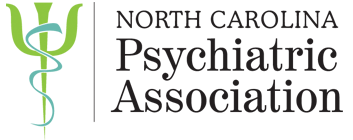- Home
- About
- Foundation
- Advocacy
- Conferences & Events
- Jobs & Classified Ads
- Contact Us
Liability Implications of SupervisionLiability Implications When Supervising and Collaborating With Other Licensed Health Care PractitionersKristen Lambert, JD, MSW, LICSW, FASHRM Moira Wertheimer, JD, RN, CPHRM Collaboration and supervision between medical disciplines are becoming increasingly common as there are more patients and fewer psychiatrists to provide direct care. Nurse practitioners (NPs) and physician assistants (PA) are becoming more widely used in psychiatry. When supervising or collaborating with other licensed healthcare practitioners such as NPs and PAs, there are a number of factors to consider. First, it is crucial to know what your relationship is and define your role whether you are the other provider’s supervising physician or if another physician is in that role. There are state guidelines which you must adhere to if in a supervisory role working with NPs and PAs. As such, be aware of the requirements set forth by the North Carolina Medical Board (NCMB) and the regulations set forth under North Carolina law. It is also important to be aware of your role within the agency/clinic. There may be differing liability risks if in the role as a partner/shareholder versus an independent contractor. Second, if you are not in a supervisory role, is it a collaborative relationship where there is shared responsibility of the patient? Whether in a supervisory or collaborative relationship, this should be identified at the outset of your relationship. It is important that you have an agreement in place with your agency/hospital/other licensed healthcare provider prior to beginning. Again, it is important that you are aware of your responsibilities with respect to Collaborative Practice Agreements (CPAs) and Supervisory Arrangements (SA) as set forth under the NCMB and North Carolina law. If either in the role as a supervisor or in a collaborative role, it is important to know if you will be requested to “sign off” on another provider’s treatment notes/plan. Even if you are not in the role as the “supervising physician” and the other provider had a bad outcome and a lawsuit is brought, you may be included in the case as a defendant by nature of your role in signing off on the note/plan. If being requested to “sign off,” this may have liability implications even if you did not have any involvement with the patient. In other words, know what you are signing off on. Conclusion Risk Management Tips
Requirements for Professional Licensure >>Medical and Nursing Board Requirements >>
Return to Main Page |
